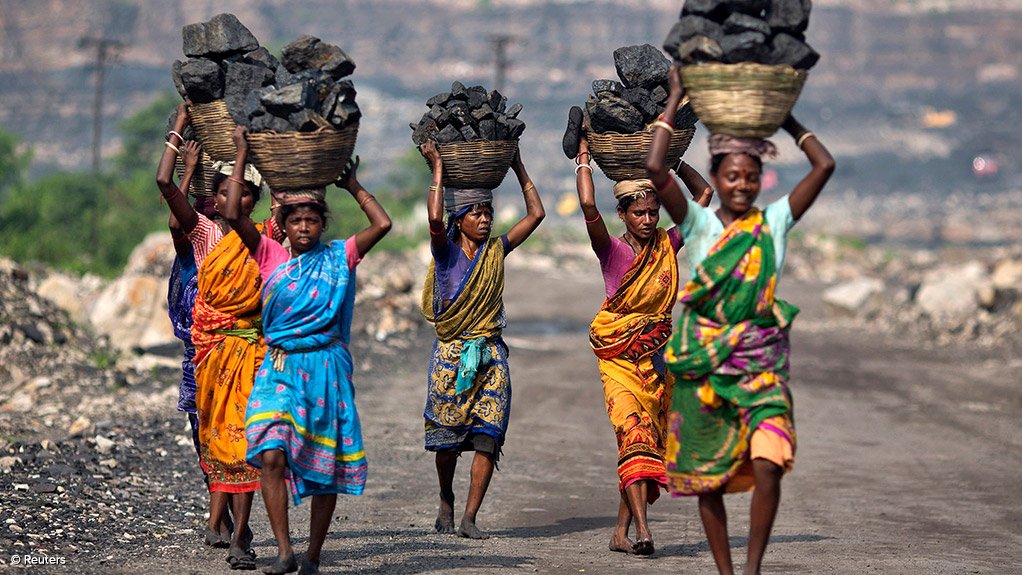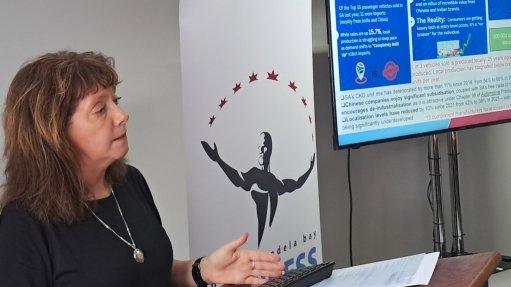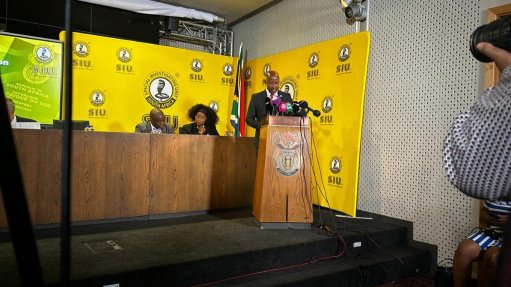PCC spotlights need for gender equality in Just Energy Transition
The Just Energy Transition (JET) framework inadequately addresses the issue of gender inequalities, says the Presidential Climate Commission (PCC), explaining that the need for gender equity is being prioritised in further planning processes in the JET, with an emphasis on implementation.
In a dialogue hosted on August 11, the PCC unpacked how the oversight of gender inequality had been raised on various platforms by stakeholders, especially since climate change exacerbates existing inequalities and increases the vulnerability of women, the marginalised and underrepresented populations.
The PCC elaborated that traditional mechanisms for coping with climate stressors often came at the expense of women and girls owing to resource constraints. The PCC was, therefore, helping to facilitate an appropriate gender-responsive climate strategy that elevated and empowered women as climate leaders.
The commission is engaging stakeholders on how the just transition can promote gender equality and social inclusion, as well as support the participation of women in sustainable economic opportunities.
United Nations Entity for Gender Equality and the Empowerment of Women programme specialist Ayanda Mvimbi explained that the JET was happening in the context of existing crises, including climate change, with mitigation of and adaptation to these threats to the livelihoods and safety of women and girls also presenting opportunities.
“Looking at the indicators of equality, such as high female unemployment and a wide wealth gap, another real threat currently lies in women being pushed into precarious working conditions and not getting paid.
“Many women are supporting the development of the economy by ensuring children get to school, for example. We have to recognise that women have multiple roles in gender-responsive climate action. Women are often referred to as marginalised, but we need to acknowledge the multiple roles they play – we cannot put them into one box,” Mvimbi noted.
She deems it vital that the JET Investment Plan clearly articulate gender targets for black women's participation, from skills programmes and leadership positions to procurement from women-owned businesses.
Mvimbi also suggests that financial institutions offer more solutions that enable support for emerging women-owned enterprises.
Pan-African social advancement organisation Africans Rising for Justice, Peace and Dignity founder and former Amnesty International secretary general Kumi Naidoo said the JET, at its point of conception, did not factor in gender inclusivity, rather, it was focused on ensuring that workers in the fossil fuel and related industries were not punished by the transition to a greener economy.
“That conversation was very much about men, because they most often work in these pollutive industries. When male workers are catered to if a coal mine shuts down, for example, what happens to the women that were supporting them and were dependent on economic opportunities around the mine?”
He stated further that the JET could not just be about adjusting the opportunities for full-time workers, but should also consider the surrounding communities.
He cited an example of tangible support as being decentralised solar microgrids in rural areas, which, if accelerated by relevant development partners, such as government and business, could help empower the women that would undoubtedly be left displaced in the JET.
Naidoo also recommends more skills programmes that are targeted at the existing capabilities of women, or that take their education into account. For example, he said an Indian college had been training illiterate women to produce solar panels, which is a model that South African colleges can pursue.
He added that, given government’s immobility as a result of resource shortages, for example, stakeholders should take charge on these sorts of initiatives, and have government match what business and society ultimately bring to the table. “Let us not be immobilised by waiting for government to take the lead on this,” Naidoo stressed.
University of the Witwatersrand Southern Centre for Inequality Studies researcher Julia Taylor agreed, saying that the JET should not only consider formal job numbers that would be lost; instead, it needed an expanded view of the economy if the system was to be sustainable.
“If more women are to be included in jobs, it is not just a question of training them, but the need to investigate why women are underrepresented in the energy sector traditionally. We cannot boost the number of women employed in the sector without acknowledging the work they are doing now, which is often undervalued and underpaid.
“Women are often providing healthcare, food in the household and childcare. The household is a central part of the economy that needs to be recognised as such. Stakeholders should therefore focus on realising affordable healthcare and child care, to free up more of women’s time,” Taylor stated.
She added that electricity access and affordability also needed to be addressed if a JET was to be sustainable and gender inclusive.
As a practical step that could be taken immediately, she recommended Statistics South Africa conducting a time use survey, which was last conducted in 2010. Taylor explains such a survey will provide insight on what people do with their time every day, which is a good measure of how much unpaid care work and informal work is taking place – which is not captured in formal employment surveys.
“How much time are women spending on the burden of fetching wood, growing food or fetching water?”
Department of Science and Innovation hydrogen and energy chief director Dr Rebecca Maserumule shared the same sentiment that stakeholders needed to understand why there were so few women in the pipeline for employment in many sectors.
“By increasing the number of opportunities along the whole value chain of a sector, we can bring in more women. We can create the baseline and set the targets, but we need to make sure our ecosystems around this skills and employment pipeline is supportive,” she highlighted.
South African Local Government Association sustainability portfolio head Dorah Marema pointed out that climate change had serious impacts, including on existing gender issues, when, in fact, women were crucial in addressing various socioeconomic issues as a result of climate change.
She points out that women were often the frontline responders to the negative impacts of climate change in communities and that they had already been adapting to droughts or floods, for example, for a long time.
“Yet, women are often not in the rooms where national policies or even local government strategies are discussed, let alone women from rural communities. It is important to find out what people are being impacted by climate change and in what manner, and incorporate their input into action plans accordingly,” Marema put forward.
Environmental organisation Greenpeace environmental activist Matthews Hlabane agreed, saying the discussions about the JET should transition to the communities and not be confined to academics, government and organisations participating.
He pointed out that the JET was not just about energy, but involved the entire society transitioning, including getting rid of ways that were wasteful, for example. He emphasised the JET must have more to do with transforming aspects such as unpaid labour.
Hlabane also believes ordinary women on the ground have the power to influence the future, not just the women in leadership positions, if only it was actually harnessed.
Western Cape Department of Infrastructure green economy director Rabelani Tshikalanke acknowledged that women were often at the periphery of the economy, which could only be remedied by more access to affordable housing, more access to markets, more upskilling of women in the green economy value chain, more green energy hubs in manufacturing zones, more technology in communities such as water harvesting tanks, as well as digital infrastructure.
He also stressed the need for more accessible venture capital for women-owned businesses.
German nonprofit Friedrich-Ebert-Stiftung sub-Saharan Africa programme manager and High Court attorney Thandiwe Matthews concluded that the JET not only provided an opportunity for an energy transition, but to reconceptualise the very policies that will shape society going forward.
“Historically, policy has not been focused on advancing society at all levels, and our social protection systems, although recognised globally, have not improved social inequalities,” she added.
She deemed it necessary that legislation be overhauled to remediate gender inequalities and for once truly advance human rights and social justice.
Article Enquiry
Email Article
Save Article
Feedback
To advertise email advertising@creamermedia.co.za or click here
Press Office
Announcements
What's On
Subscribe to improve your user experience...
Option 1 (equivalent of R125 a month):
Receive a weekly copy of Creamer Media's Engineering News & Mining Weekly magazine
(print copy for those in South Africa and e-magazine for those outside of South Africa)
Receive daily email newsletters
Access to full search results
Access archive of magazine back copies
Access to Projects in Progress
Access to ONE Research Report of your choice in PDF format
Option 2 (equivalent of R375 a month):
All benefits from Option 1
PLUS
Access to Creamer Media's Research Channel Africa for ALL Research Reports, in PDF format, on various industrial and mining sectors
including Electricity; Water; Energy Transition; Hydrogen; Roads, Rail and Ports; Coal; Gold; Platinum; Battery Metals; etc.
Already a subscriber?
Forgotten your password?
Receive weekly copy of Creamer Media's Engineering News & Mining Weekly magazine (print copy for those in South Africa and e-magazine for those outside of South Africa)
➕
Recieve daily email newsletters
➕
Access to full search results
➕
Access archive of magazine back copies
➕
Access to Projects in Progress
➕
Access to ONE Research Report of your choice in PDF format
RESEARCH CHANNEL AFRICA
R4500 (equivalent of R375 a month)
SUBSCRIBEAll benefits from Option 1
➕
Access to Creamer Media's Research Channel Africa for ALL Research Reports on various industrial and mining sectors, in PDF format, including on:
Electricity
➕
Water
➕
Energy Transition
➕
Hydrogen
➕
Roads, Rail and Ports
➕
Coal
➕
Gold
➕
Platinum
➕
Battery Metals
➕
etc.
Receive all benefits from Option 1 or Option 2 delivered to numerous people at your company
➕
Multiple User names and Passwords for simultaneous log-ins
➕
Intranet integration access to all in your organisation





















